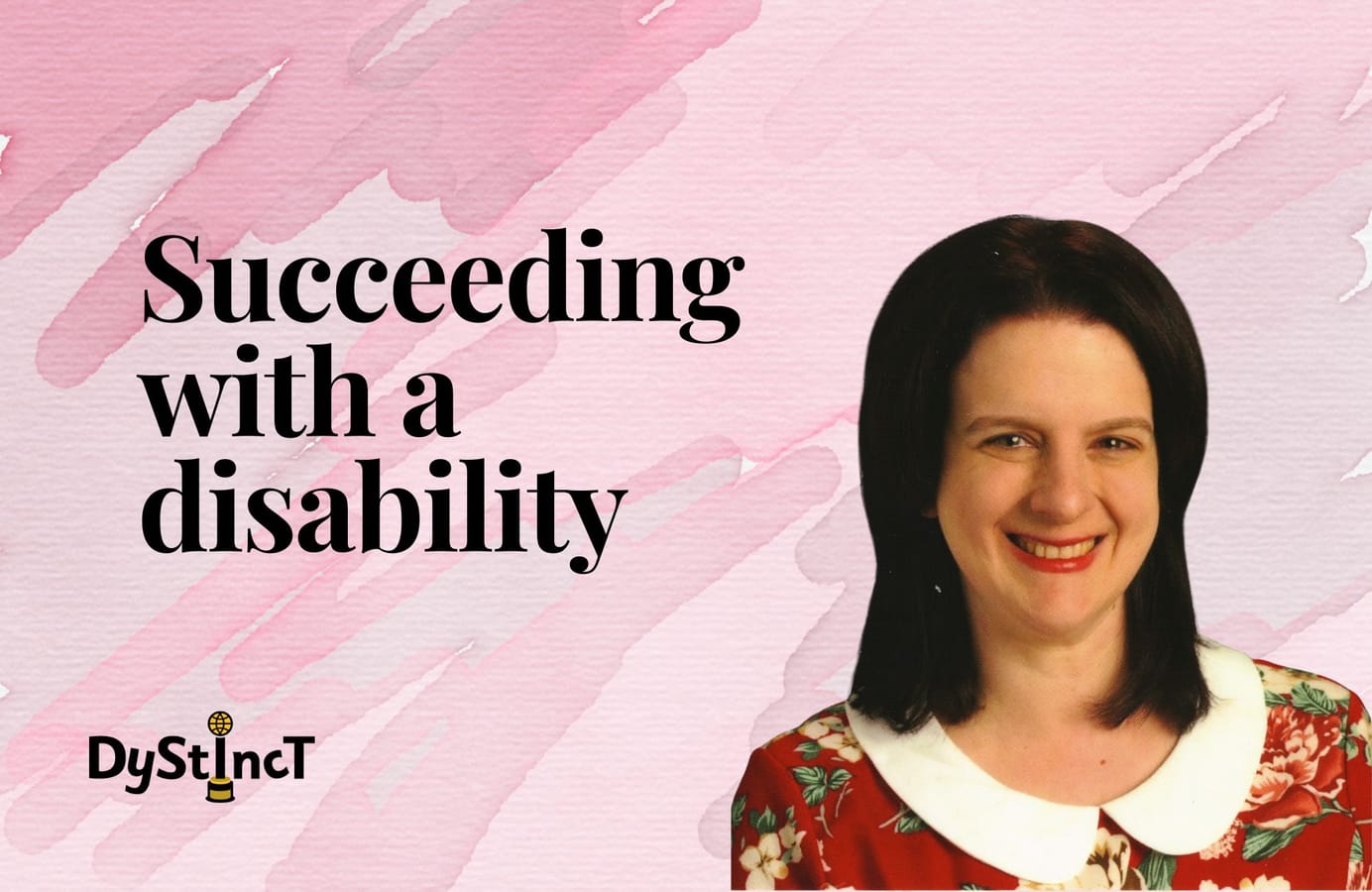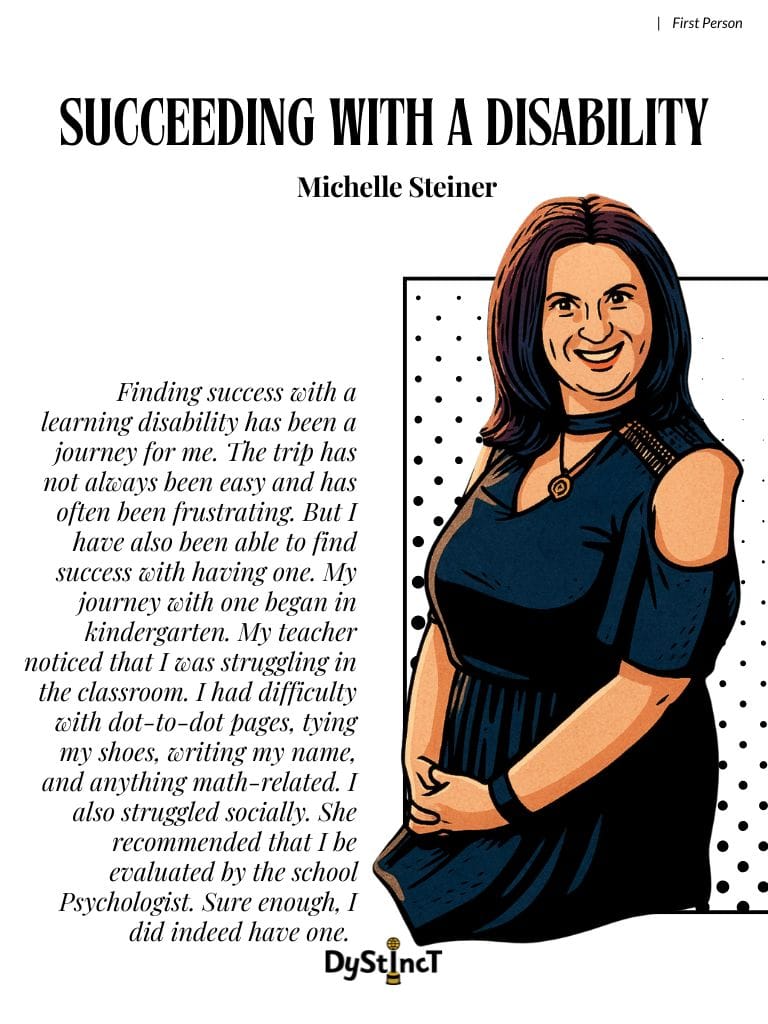
Issue 27: Succeeding with a disability | Michelle Steiner
Michelle recounts her lifelong journey with a learning disability, overcoming stigma, setbacks, and low expectations to achieve academic success, meaningful work, creative fulfilment, and personal growth, using her lived experience to empower others with disabilities to advocate for themselves.

Finding success with a learning disability has been a journey for me. The trip has not always been easy and has often been frustrating. But I have also been able to find success with having one. My journey with one began in kindergarten. My teacher noticed that I was struggling in the classroom. I had difficulty with dot-to-dot pages, tying my shoes, writing my name, and anything math-related. I also struggled socially. She recommended that I be evaluated by the school Psychologist. Sure enough, I did indeed have one.
Words by Michelle Steiner
Words by Michelle Steiner
When I was diagnosed, it was more of a general diagnosis. Other than Dyslexia, specific learning disabilities such as Dyscalculia, Dysgraphia were not mentioned. My dad remembers the school telling him that I would never understand math beyond a basic level. By age 5, it was determined that I would not be a mathematician. My Elementary school years were the hardest for me.
I had to repeat the grade in another school in our district and began to receive specialty instruction. I spent my mornings in specialty instruction in all subject areas, including math, reading, and writing. The instruction was in a small group, focusing on what I needed to learn. My afternoon was spent in a Kindergarten class. I can remember feeling frustrated and in despair during those early years. I wanted to learn, but no matter how hard I tried, it did not seem to happen. I thought that life would always be hard and that having a disability would stand in my way of success.
Frustration and despair.
I was able to participate in regular education Science and Social Studies classes with support. I had extended test time, and the test was read aloud to me. Having extra time gave my brain more time to process information. The accommodation of hearing the test read aloud helped my mind to comprehend the information. I was in all regular education classes except for math and a resource room.
People also found out what I was good at and encouraged me. My teachers remarked that I read with expression. My dad found a story that I wrote about a dinosaur and told me that it was good. Hearing those words encouraged me, and I wrote more stories. Reading and writing became my world.
Socially, school was a struggle for me, too. I went to a very small conservative community. It was known for being close-knit. I did not fit in, and the bullying began very young. The small nature of the school made it impossible to blend in with the crowd. Everyone knew that I went to learning support for certain classes or to take a test. When I was in the classroom, it was clear that I struggled. I quickly got labeled as an outcast.
What helped me to find friends was to look for interest groups outside of school. In high school, I found an arts group for teenagers outside of my school district. I found other people my age who shared my interests. I also met others who did not go to my school and did not have my outcast reputation follow me.
This post is for paying subscribers only
SubscribeAlready have an account? Log in


